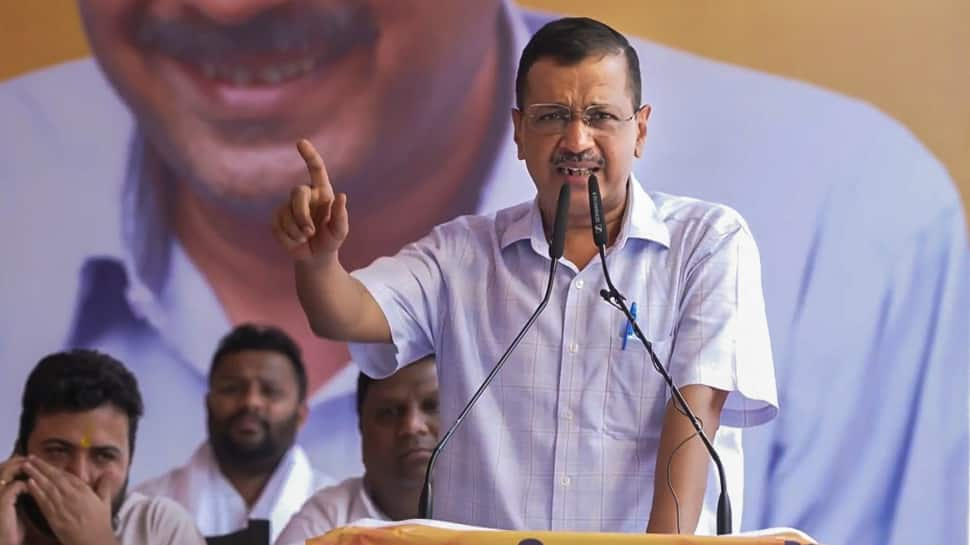 |
|
The upcoming Delhi Assembly elections have ignited a fierce political battle centered around the alarming issue of Yamuna River pollution. The conflict primarily involves the Aam Aadmi Party (AAP), led by Chief Minister Arvind Kejriwal, and the Bharatiya Janata Party (BJP), currently in power in Haryana. Kejriwal's controversial statement alleging that Haryana is deliberately poisoning the Yamuna River, a crucial source of Delhi's water supply, has sparked outrage and a swift legal response from the Haryana government. This high-stakes accusation has not only escalated tensions between the two parties but has also raised serious public health concerns regarding the safety of Delhi's drinking water.
Haryana's Revenue and Disaster Management Minister, Vipul Goel, vehemently denounced Kejriwal's claims as irresponsible and panic-inducing. The Haryana government plans to file a legal case against Kejriwal under the Disaster Management Act, citing provisions that penalize the spread of false alarms concerning disaster severity. Goel asserted that Haryana’s water supply to Delhi is thoroughly checked and meets quality standards, dismissing Kejriwal's accusations as baseless fabrications. This official response is bolstered by Prime Minister Narendra Modi, who echoed similar sentiments in a rally. Modi criticized Kejriwal for making what he termed 'malicious allegations' against Haryana, emphasizing the close familial and resource-sharing ties between the two regions. He questioned the plausibility of Haryana intentionally poisoning its own people and challenged Kejriwal's claim that the water supplied to Delhi is of unsafe quality.
Haryana Chief Minister Nayab Singh Saini further dismissed Kejriwal's statement as a mere political stunt designed to sway voters ahead of the February 5th Delhi polls. Saini reiterated Haryana's commitment to ensuring clean and uninterrupted water supply to Delhi. However, the AAP vehemently refuted these accusations, maintaining that the BJP-led Haryana government is intentionally discharging industrial waste into the Yamuna River, jeopardizing the health and well-being of Delhi's residents. Delhi Chief Minister Atishi also backed Kejriwal's assertions, alleging that the BJP is disrupting Delhi's water supply in a desperate attempt to counter its anticipated electoral defeat. The AAP's accusations center around the theory that the BJP is engaging in dirty politics and potentially harming the health of a vast population solely for political gains.
The escalating conflict over the Yamuna River’s water quality highlights the broader political climate leading up to the Delhi elections. The accusations and counter-accusations exchanged between the AAP and BJP underscore the high stakes involved and demonstrate the willingness of both parties to engage in strong rhetoric to mobilize their voter base. The case highlights the complexities of interstate resource management, where political tensions can significantly impact vital public services like clean water supply. The contrasting narratives presented by both sides necessitate independent investigations into the actual water quality and source of pollution to ensure the safety and well-being of residents in both Delhi and Haryana. The outcome of the legal action against Kejriwal and the results of the upcoming elections will significantly impact the future of inter-state relations and the management of shared natural resources.
The incident underscores the crucial role of transparency and accountability in managing shared resources, especially those vital for public health. The lack of readily available, unbiased data on the water quality further complicates the situation, allowing for political maneuvering and misinformation. Moving forward, establishing robust monitoring mechanisms, involving independent audits, and open data sharing would be essential in building public trust and avoiding similar politically charged controversies. Ultimately, the health and well-being of the citizens of both Delhi and Haryana should remain paramount, irrespective of political affiliations or election cycles. The focus should shift from partisan bickering towards collaborative efforts focused on mitigating pollution and guaranteeing the safety of the water supply.
The case also raises questions about the effectiveness of existing regulations and enforcement mechanisms related to water pollution. The accusations of deliberate contamination highlight potential weaknesses in the monitoring and prosecution of environmental violations. Strengthening these mechanisms, ensuring stricter penalties for violators, and promoting public awareness about water quality issues are crucial steps in preventing future conflicts and safeguarding the health of the population. The use of social media and political rhetoric by both parties complicates the issue further, often obscuring scientific evidence with emotionally charged language designed to influence public opinion. This demonstrates the need for responsible information dissemination and the importance of relying on credible scientific sources rather than partisan narratives when assessing public health risks.
Source: Haryana Minister To File Case Against Kejriwal Over ‘Poison In Yamuna’ Remark
